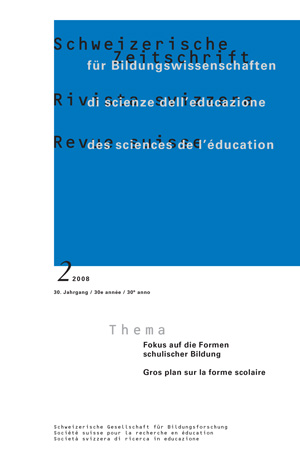Teaching Oral Tradition: What Type of Professional Training for the Mande Bards?
DOI:
https://doi.org/10.24452/sjer.30.2.4793Keywords:
Education, oral tradition, didactic gestures, regulation, teaching of panegyrics, griots of KelaAbstract
This article deals with education to oral tradition in West Africa. Its author analyses the training of Mande bards or griots in a small village – kela (in Mali) – through a didactic point of view. The general organisation of that village reveals two types of training which are complementary. The first one is embedded to everyday life, it provides what the author refers to as a type of socio-general training which covers some basic cultural topics emerging from social interaction with elders. The second one is clearly distinct from everyday life situations. Unlike the first one, it is planned and it provides a type of professional training which is disciplinary (e.g. music, public oral expression). As concerns the analysis of this second training which focuses on the teaching of panegyrics, the author describes the specific didactic gestures displayed by the local teacher to make trainees memorize the praises they are dealing with. Further analyses show that this is just the first step of an oral process where the object of teaching is first shared (between teacher and learners), made to be mastered (by learners) before launching, upon the object, some interaction and regulation aimed at strengthening that specific teaching by explaining some meaning, and showing how to melt praises into narrative sequences or how to handle a recitation of praises in real professional contexts.
Downloads
Downloads
Published
Issue
Section
License
Copyright (c) 2008 Simon Toulou

This work is licensed under a Creative Commons Attribution 4.0 International License.



